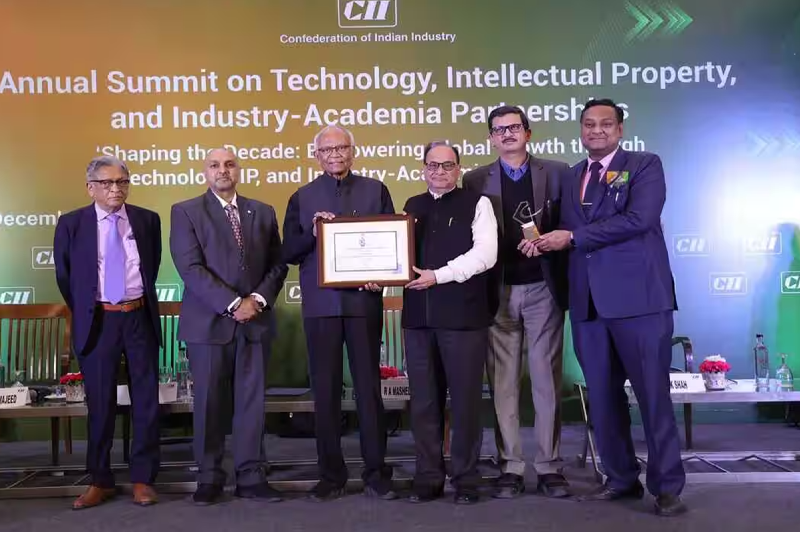
Why IIT Graduates Prefer IT and Banking Jobs Over Core Industries: Insights from IIT Roorkee Director
In recent years, India’s premier institutes of technology have seen a clear shift in student career preferences. While the Indian Institutes of Technology (IITs) have historically produced some of the brightest minds for core engineering industries, today’s graduates are increasingly turning towards information technology (IT), banking, finance, and consultancy. The Director of IIT Roorkee, Prof. Kamal Kishore Pant, recently shared his views on this trend, raising significant concerns about its impact on the country’s industrial growth.
A Changing Career Landscape at IITs
Prof. Pant, who was Director of IIT Roorkee in 2022, observed that students are less interested in the “process industry”—sectors like chemical, mechanical, and electrical engineering. Instead, lucrative pay packages and workplace comfort draw them towards IT and financial roles.
“Students are now not going for hardcore jobs, which is a kind of worry,” he said on the sidelines of IIT Roorkee’s convocation. “They look at IT jobs, banking, finance, and consultancy. Initially, they look at the (pay) package, and the job comfort—whether they have an office, computer, AC room.”
He noted that this mindset is causing a disconnect between the country’s technical talent and industries that are crucial to national development.
Placement Data: Decline or Diversification?
The concern comes against data showing a drop in placements at IITs. Earlier this year, a report presented by the Parliamentary Standing Committee on Education, Women, Children, Youth and Sports revealed that in more than half of the 23 IITs, placements for BTech students fell by over 10 percentage points between 2021-22 and 2023-24.
At IIT Roorkee, for example, 98.54% of the 822 students who appeared for placements in 2021-22 were placed. In 2023-24, out of 1,052 students who sat for placements, 79.66% received offers.
However, Prof. Pant clarified that this drop should not be considered a straightforward decline. He explained that many students no longer opt for placements because they pursue other avenues such as higher education, start-ups, or independent ventures. “On average, about 85% of those who appear for placements are getting jobs,” he said, adding that placement statistics should focus on registered candidates rather than the total graduating batch.
Why IT and Banking Are More Attractive
One of the key reasons students prefer IT and finance over core industries is the salary gap.
“In multinationals like Google and Microsoft, salaries can reach ₹1–2 crore, sometimes even paid in dollars while the employee is working in India,” Prof. Pant explained. In contrast, salaries in hardcore process industries average around ₹20–25 lakh per year.
While these figures highlight the initial disparity, Prof. Pant pointed out that process industries can be equally rewarding in the long term. Unfortunately, the perception of immediate pay and comfort often overshadows these opportunities.
The Role of Parents and Expectations
Prof. Pant also stressed that the issue goes beyond students and involves parents. “This is the kind of training we have to give the young generation and their parents when they join the institute,” he said.
He urged families to understand that mechanical, electrical, and chemical engineering branches are equally important and offer robust career prospects. Students and parents risk overlooking the broader contribution that core industries make to the country’s GDP and overall development by focusing only on IT-driven careers.
Strengthening Industry Connections
IIT Roorkee is strengthening its partnerships with MSMEs (micro, small, and medium enterprises) and large-scale industries in response to these challenges. These collaborations are designed to expose students to opportunities in the process industry and demonstrate that such roles are essential and sustainable in the long run.
Industries actively engage with the institute, offering students hands-on projects and internships. IITs hope to make core sector careers more appealing by bridging the gap between academia and industry.
Entrepreneurship and New Career Mindsets
The entrepreneurial spirit is another major factor that contributes to fewer students participating in placements. Many IIT graduates today prefer launching start-ups, building their own teams, and creating independent ventures instead of working in established industries.
“Students today have different mindsets,” Prof. Pant noted. “Some want to start their own companies, some are pursuing higher education—though that number is now decreasing—and many prefer to do something independently within the country.”
IIT Roorkee and other IITs encourage this spirit of innovation with skill development programs and entrepreneurship training. While this trend reduces the percentage of students placed through traditional channels, it reflects a healthy diversification of career choices.
Balancing Aspirations with National Needs
The Director emphasized the need for balance. While IT, finance, and entrepreneurship are vital to India’s future, the process industries cannot be ignored. They remain the backbone of infrastructure, energy, and manufacturing sectors that drive GDP growth and employment at scale.
Prof. Pant believes that educating students about long-term prospects, rather than just short-term packages, will be key. The IITs can align graduate aspirations with the nation’s developmental needs with stronger industry-academia collaboration and awareness programs for students and parents.
Conclusion
The career choices of IIT graduates are evolving, reflecting both global opportunities and changing priorities among India’s youth. While IT and banking offer high pay and comfort, core sectors like process industries are equally critical for sustainable growth.
As Prof. Pant highlighted, the challenge lies in creating awareness, bridging industry connections, and nurturing a balanced outlook among students and their families. Ultimately, the future of India’s economy will depend on how effectively its brightest minds contribute across both emerging and traditional sectors.



